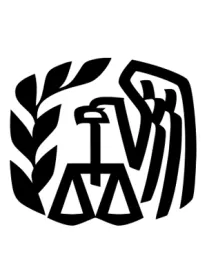Fines pertaining to violations of federal securities laws and certain FINRA rules may not be deducted.
The Internal Revenue Service (IRS) in low-level advice recently announced its position that certain fines paid to the Financial Industry Regulatory Authority (FINRA) are not deductible under Section 162(f) as fines paid to an entity “serving as an agency or instrumentality of the government.” The IRS noted that this has always been its position and that the matter is clear-cut and ripe for summary judgment in future litigation.
Background
Section 162(f) of the Internal Revenue Code of 1986, as amended (the Code), prohibits a deduction for “any fine or similar penalty paid to a government for the violation of any law.” Treasury Regulation § 1.162-21(a)(3) expands the prohibition to any fine or similar penalty paid to a “corporation or other entity serving as an agency or instrumentality” of the US government. No authority defined “agency or instrumentality” for the purpose of Section 162(f) until the US Tax Court in Guardian Industries[1] adopted a three-prong test for determining whether an entity is an “agency or instrumentality” for this purpose. Pursuant to the test established in Guardian Industries, an entity is an “agency or instrumentality” of the US government for purposes of section 162(f) if
-
the entity has been delegated the right to exercise part of the US government’s sovereign power,
-
the entity performs an important function of the US government, and
-
the entity has the authority to act with the sanction of the US government behind it.
Recent IRS Chief Counsel Advice
The IRS stated its position in Chief Counsel Advice Memorandum (CCA) 201623006, released June 3, and applied the test announced in Guardian Industries to conclude that FINRA is a “corporation or other entity serving as an agency or instrumentality” of the US government when it performs duties mandated under the Securities Exchange Act of 1934 (the 1934 Act). Thus, the CCA states that fines paid to FINRA for violation of federal securities laws and regulations and FINRA rules promulgated pursuant to such authorities are not deductible under Section 162(f). However, Section 162(f) would not apply to limit a deduction for fines paid to FINRA on account of violating a “‘house-keeping’ rule that is a matter of private contract between FINRA in its capacity as a professional association and its members.” With the CCA maintaining that this has always been the IRS’s position,[2] any taxpayers who have deducted fines paid to FINRA in tax years still subject to audit under the statute of limitations may have those deductions challenged.
FINRA
In 1938, the US Congress added Section 15A to the 1934 Act to provide for the creation of national securities associations of broker-dealers with powers to adopt and enforce rules that regulate its members. The National Associate of Securities Dealers Inc. (NASD) was FINRA’s predecessor and the only self-regulatory organization (SRO) that was also an officially registered securities association under Section 15A. In 2007, the NASD and the New York Stock Exchange’s enforcement and arbitration operations merged to create FINRA.
As a registered SRO, FINRA is paradoxically a privately funded nonprofit and nongovernmental entity that is authorized by the government to monitor members’ compliance with federal statutes, US Securities and Exchange Commission (SEC) rules, and its own rules and to discipline noncompliant members. With membership in an SRO a prerequisite for securities firms and brokers to register with the SEC, FINRA oversees the activities of approximately 4,000 securities firms with 640,000 brokers. According to FINRA’s website, FINRA levied $95.1 million in fines in 2015.[3] Although FINRA is not empowered by federal law to bring judicial action to enforce its fines, the SEC asserts such authority.
The crux of the court’s holding in Guardian Industries and of the IRS in the CCA is that “the real sting from imposition of a fine or penalty follows from the ability to collect it.”[4] Thus, FINRA’s disciplinary power to levy and collect fines satisfies the first and third prongs of the Guardian Industries test because FINRA has been delegated an essential attribute of sovereignty to levy fines, with the SEC waiting in the wings to ensure that such fines are paid. The IRS found in the CCA that the second prong of the Guardian Industries test was satisfied because Congress provided generally for the regulation of the securities industry by both the SEC and through self-regulation, the latter of which FINRA carries out.
FINRA’s self-identification as a private nongovernmental organization is of no consequence to the IRS’s conclusion in the CCA because the court in Guardian Industries found it to be immaterial to the issue of “agency or instrumentality” of a government whether the entity in question is controlled by or subordinate to the government. The IRS reasoned further that it should be immaterial whether a taxpayer who violates a federal law pays the penalty to the SEC or FINRA and that to treat them differently would be to violate the tenet of tax policy to treat similarly situated taxpayers similarly.
Almost as an afterthought, the CCA makes the important distinction that fines paid to FINRA for violation of its mere “house-keeping” rules will not be subject to Section 162(f). The IRS points to the finding in Guardian Industries that “an entity can be an ‘agency’ or ‘instrumentality’ of government for one purpose but not another.”[5] The IRS interprets this to mean that an entity can for the purpose of the same Code section be an “agency or instrumentality” and at other times be the private entity that it holds itself out to be. The IRS may be cutting too fine a line in its attempt to prevent on average $89 million of taxpayer deductions.[6] Nevertheless, it asserts that the CCA position is ripe for summary judgment in any potential litigation.
[1] 143 T.C. 1 (2014).
[2] The CCA dismisses Rothner v. Comm’r, T.C.M. 1996-442, finding that fines paid to the Chicago Mercantile Exchange were not subject to Section 162(f), as affecting this conclusion because the IRS conceded the point in Rothner, albeit for unknown reasons.
[3] www.finra.org/about.
[4] Guardian Industries, 143 T.C. 1, 19.
[5] Id. at 14.
[6] From 2012 to 2014, FINRA levied fines of approximately $69 million, $60 million, and $132 million per year, respectively. See www.finra.org/about/annual-reports-financials.






 />i
/>i

